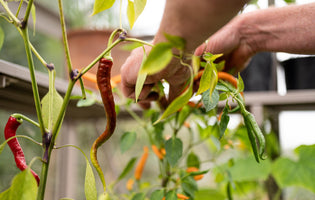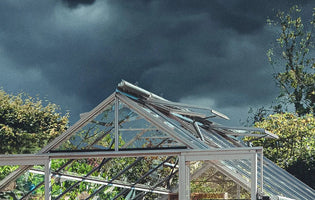I’d quite like this winter to hang up its boots now and concede to spring. It’s given things a shot, but where I live, on the Devon/Dorset border, it’s never really hit the mark; winters been standing in the sidelines. Throughout November and December, the weather, one of winter’s most rousing facets, hung around, soggy, gray and dull. If you stood in the garden you could hear a pine needle drop.
The honeybees resented everything. The weather just had no character or appeal to speak of. Give me a storm any day, a gale. Give me a hard, crispy frost, a flash flood, a blindingly bright, bitter day. Give me something to think about weather, other than this, damp, still, nothingness. I nearly ignored my garden as a result. Stayed inside dreaming.
After Christmas things started to change. The low, claggy mizzle was blown back to sea by more confident winds and the ground firmed up underfoot. At last I felt ready to open up the gate to the veg garden and step on in. I was prepared to face neglect head on, and right all those horticultural wrongs that had crept silently around the greenhouse and choked the beds in my vacancy.
To my surprise, life in the veg garden was much as I left it. Things really hadn’t got away from me at all. There were a few healthy clumps of coffee colored mushrooms, smooth, waxy, unidentifiable, which had sprung up between the oak sleepers and the soil they retained. Leaves and twigs clogged the little gutters that run the length of the greenhouse and the kale had fallen clean over. Apart form that; the veg garden had remained the same since the autumn.
It’s hard to know which month constitutes midwinter, especially if we get snow in March or 16.c highs in January. I think we go with how things feel. What the weathers saying, what’s happening in the soil, what the birds are telling us. I always used to think of February as the depths of winter, but now, if I look closely, there are signs in the garden that would challenge that. The bronze fennel that I cut right back to the ground in October has decided, happily, to put up some new fine, feathery green shoots slashing the dark soils surface in a single bright row from one side of the bed to the other. The sorrel and rainbow chard, which are both now in their second year, have sat dormant for months. They’ve toughed out the mean times and it’s paid off. There’s lovely young growth here and there too. It’s great to see and gives me something else, other than kale and leeks, to wilt or steam in the kitchen again.
Under the old terracotta chimney cowls the rhubarb is pushing it’s pink tops out of the depths – a vivid strike of color in a well of resting darkness. Beyond the confines of the deer proof fence, timid families of snow drops have arrived and the blade like shoots of daffodils begin to pierce their way sunward. But I wouldn’t say it’s spring, not quite yet!
There are jobs metaphorically chalked up on the slate, I need to scratch out, tick off and put to bed. In winters first quarter, let’s say, I up ended a dozen cumbersome builders sacks full of good horse manure over all my growing areas, including the L shaped greenhouse bed. How fantastically satisfying it is to rake out manure (I never really thought I’d say that), and to know the good it’s doing the soil. But my own homemade compost has superseded this of late. We built our 3 bay compost bin at the same time as the veg garden itself. I still remember tipping that first bucket of trimmings, peelings, teabags and egg shells onto the untouched base of one of the new compost bays and thinking ‘that’s going to take years to fill’. I needn’t have worried, within the first 12 months it was brimful. Layer upon layer of kitchen leftovers, summer grass cuttings, autumn leaves, sticks, cardboard, wool and anything else that would feasibly rot down in the way I hoped. When I turned the compost (an exerting task) six or seven months ago, things were looking up. It had taken its time, but it was all breaking down nicely. I covered it again and left it until roughly last week, when I heaped the first joyous forkfuls out and over the garden. It was a momentous moment. I felt like I’d achieved a full holistic circle for once. I’d turned nothing into something; waste into gold, black gold, all by myself. Now I can use it to grow food, and so the cycle continues, decay makes way for life and life makes way for decay. It’s good to be part of such a simple pleasure.
In the greenhouse it’s quiet. I can stand there, happy in myself, for hours, listening to the rain and the wind, safe under glass, reading my crumbling copy of The Veg Patch. Tinkering, toying with this or that, rooting through my seeds like my Favorite LPs. There are, according to the paper packets and the advice in my books, a variety of seeds that can be sown in early February. Broad beans, radish, winter lettuce, onion sets and garlic, yes, apparently it’s not too late to get my garlic in the ground – which I’ve done, en masse!
It’s exciting to be pushing seeds into the earth again.
Gill Meller







